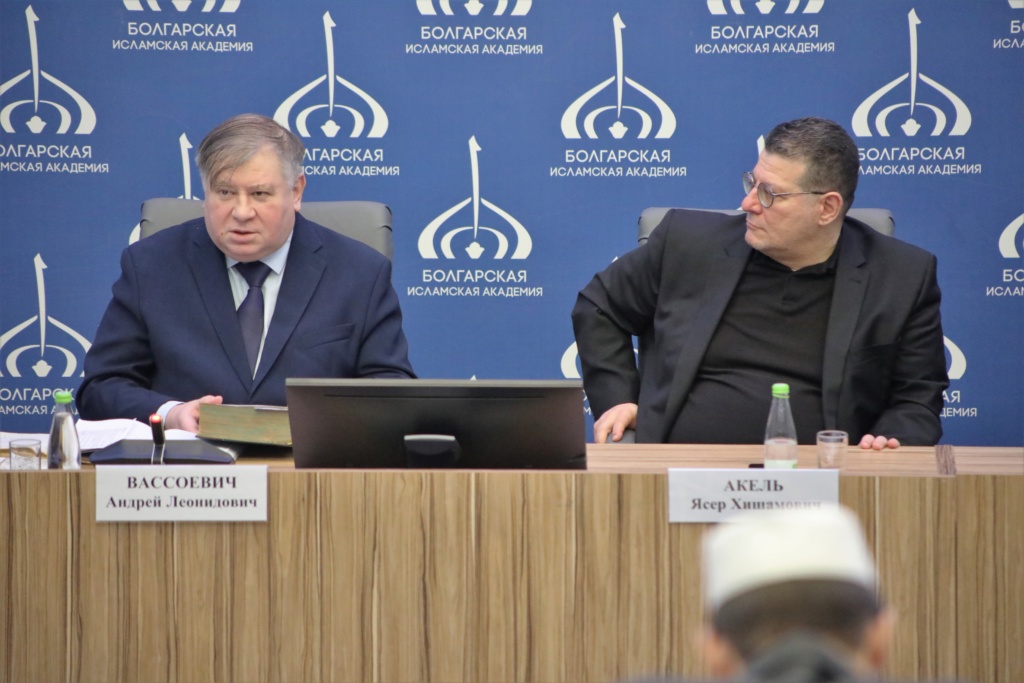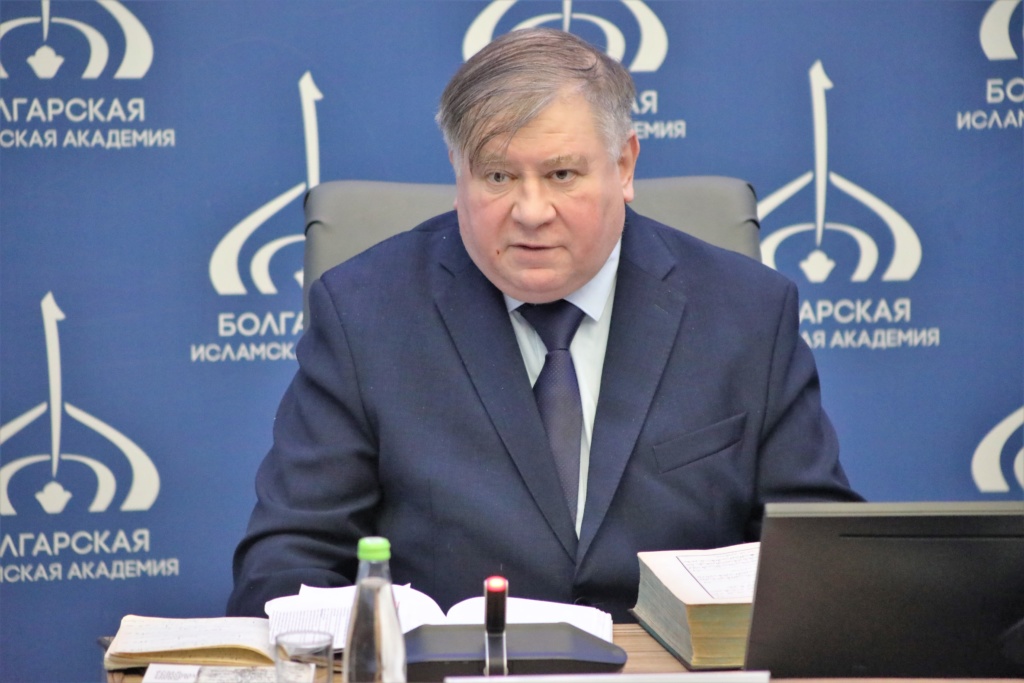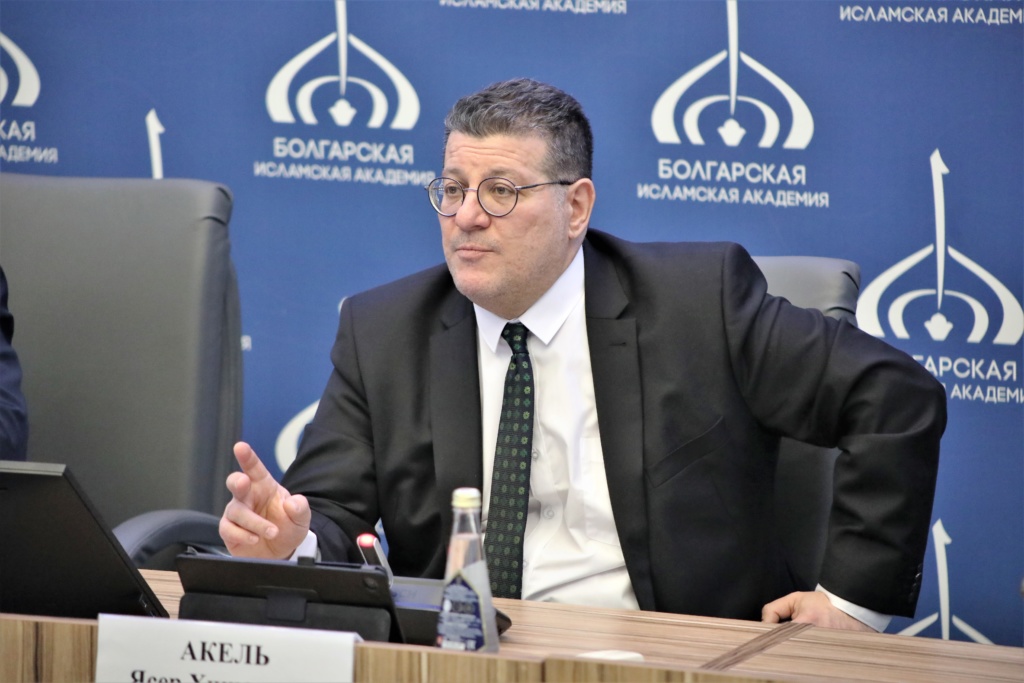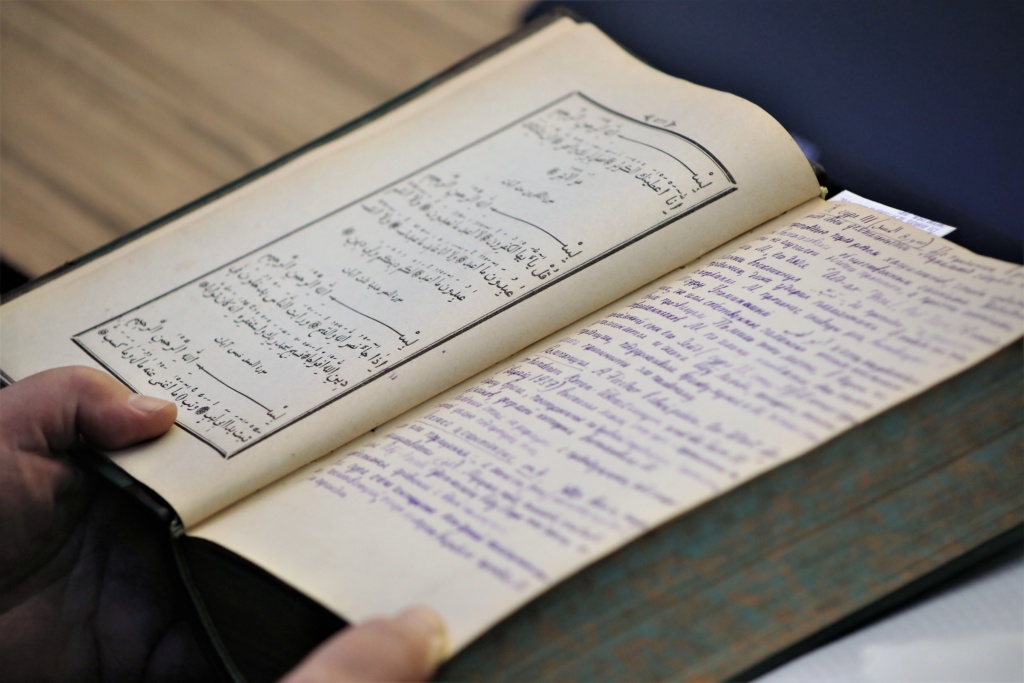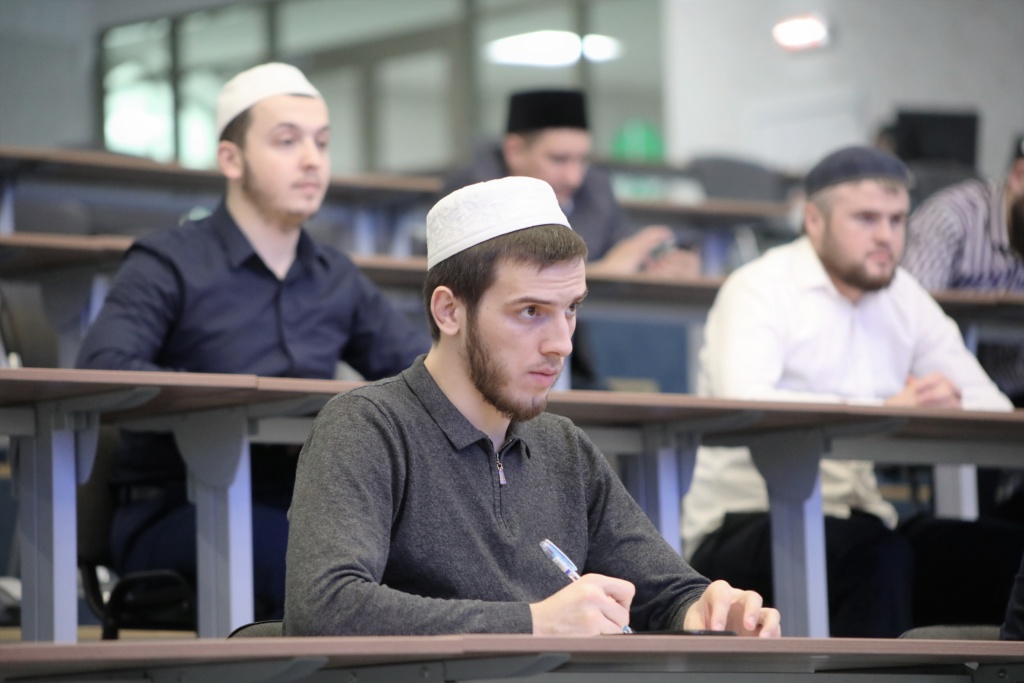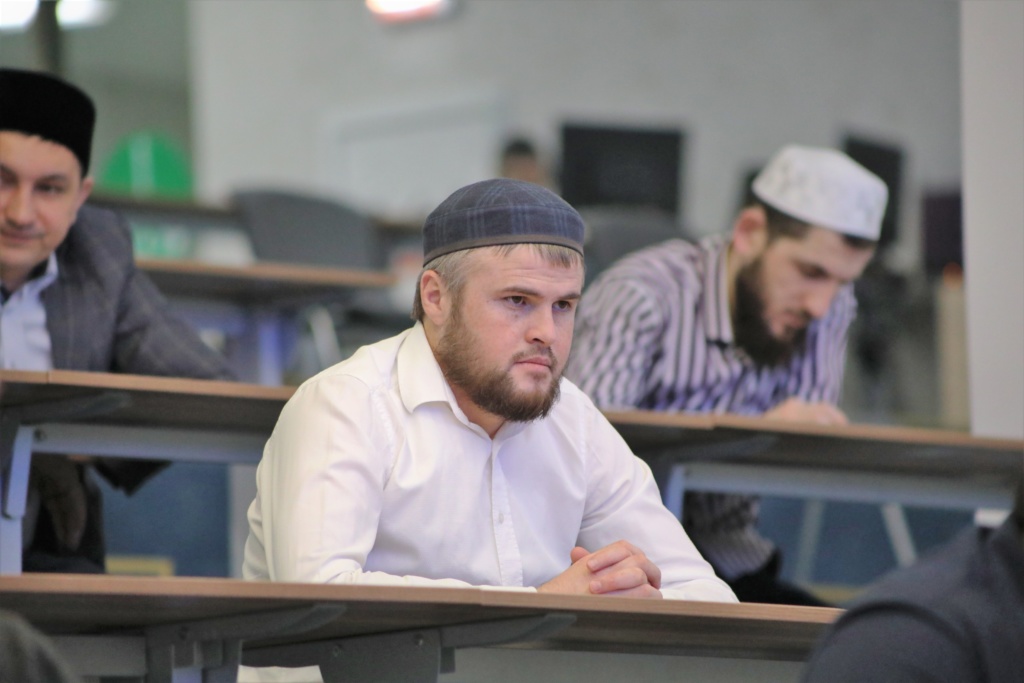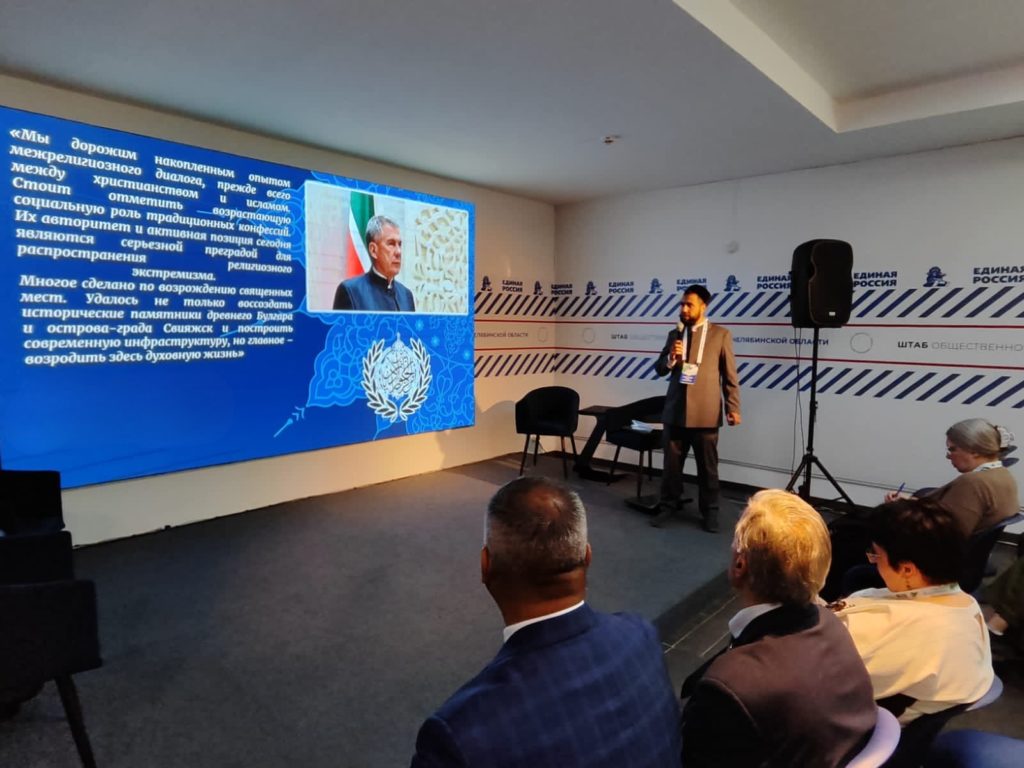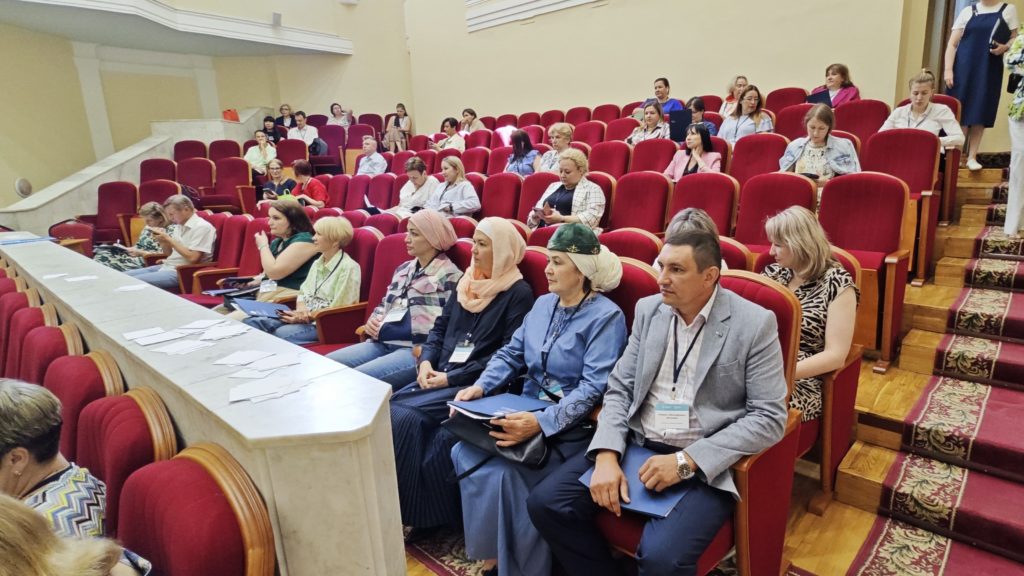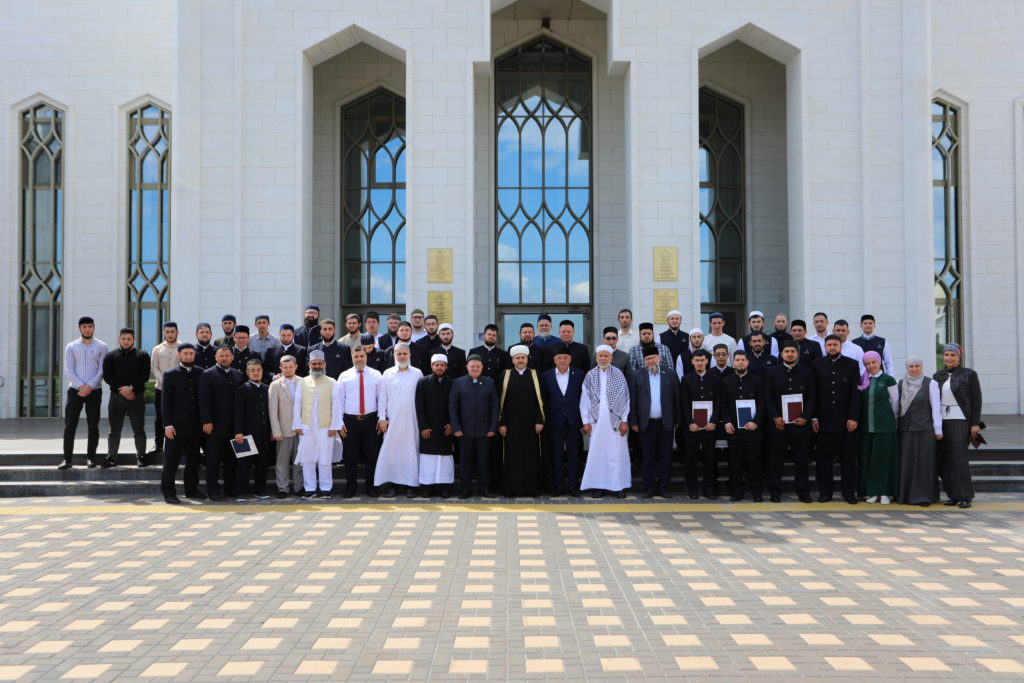As part of the celebrations to mark Russian Science Day within the framework of the Bolgar Islamic Academy, a cycle of lectures and master classes was organized by leading specialists in Arabic studies – Director of the Institute of Oriental Studies of the A. I. Hertzen Russian State Pedagogical University, Doctor of Philosophy, Professor Andrey Vassoevich, and Senior Lecturer of the University, Akel Yasser.
The director of the Institute of Oriental Studies of A. I. Herzen, Russian State Pedagogical University, delivered two lectures to the students of the Academy: “Ancient Languages and Culture of the Arab Countries as a Component of an Islamic Studies Education,” and “Unpublished Interpretations by A. Y. Borisov on Qur’anic Surahs.”
Professor Andrey Vassoevich noted that the Academy made an indelible impression on him. According to him, the White Mosque can rightly be considered a unique architectural monument of the XXI century and should be included in the golden fund of outstanding buildings.
“Here, in the Bolgar Academy, the life of students is perfectly organized, for the comfortable living of which all conditions have been created so that they could devote their time to getting an education. The excellent Arabic language skills the students receive here are very valuable. As representatives of secular higher education, we, in our first year here, have to deal with students who know nothing about Arabic studies and Islamic studies, neither the Shahada, nor Surah Ikhlas, nor Arabic letters. Here we were pleasantly surprised by the Koran-reading skills of those who are still in their first year,” said Andrei Vassoevich.
In turn, Akel Yasser, a senior lecturer at the university, conducted a master class for undergraduates and doctoral students on simultaneous interpretation in an Arabic-Russian language pair and delivered a lecture on “Medieval Islamic Medicine”.
“The rapid development of Arab-Muslim medicine was facilitated by several factors at once. First of all, we should mention the expansion of the Caliphate into the East and West, which implied the inclusion into the state of different peoples who had theoretical and practical skills of healing. We should also not forget about the acquisition of the Arabic language status as the language of international communication, which was an impetus to the rapid development of sciences, as scientists could communicate with each other, read scientific works, exchange knowledge, and form new methods of prevention and treatment of diseases. At the same time, the Abbasid dynasty encouraged science and the creation of a prototype academy of sciences, where scholars and even monks who spoke different languages were invited,” Yasser shared.
At the end of the meeting with the students, Andrey Vassoevich wished the masters and doctoral students of the Academy zealous study and love for the Holy Book.
“May great scholars, great connoisseurs of the Qur’an and Islamic sciences, grow within these walls,” the esteemed professor said in an exhortation.
